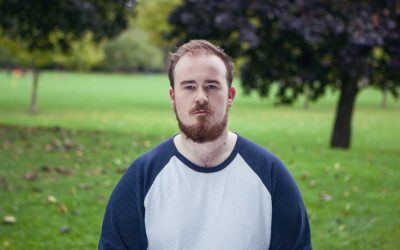Women are twice as likely to develop anxiety disorders as men, but little is known as to why. Whist some existing psychological treatments (Such as exposure therapy) work for many people, they don’t work for everyone.
This project investigates the connection between hormones and anxiety and to find out if natural variations in hormones, such as oestrogen, make anxiety more likely and does this affect the way people respond to treatment.
Oestrogen levels are low during the early phase of the menstrual cycle, and even lower when women are taking hormonal contraceptives, such as the pill. Up to 80% of women will use hormonal contraception at some point in their lives so it is important to understand the effect they have on treatment outcomes.
Research has already shown that sex hormones can affect the mechanisms that control fear. With this in mind, the project was designed in two parts.
Part one examined fear responses in two groups of women. One group had spider phobia, and the other group had no phobia. In each group, half were at a time of high oestrogen, and half at a time of low oestrogen. They were then given one of the two methods of psychological treatment: exposure therapy or cognitive reappraisal.
Part two was a clinical trial that investigated the effectiveness of Cognitive Behavioural Therapy (CBT) for spider phobia for 90 women throughout their natural hormonal cycle. Women’s oestrogen levels were measured on the day of treatment. Their self-reported fear, and behavioural avoidance of spiders was measured 1-week and 12-weeks after treatment.
If it is determined that women respond better to treatments for anxiety and GAD at different points in their natural hormonal cycle , treatments can be administered more effectively. This can lead to greater recovery and cost savings for health services.
Findings
Bronwyn found that women with anxiety, who had low levels of the hormone oestrogen, were less likely to get better - and stay better - following psychological treatment. This means that if we can schedule treatment when oestrogen is highest (in the second week of the menstrual cycle), it could end up being more effective - enabling more people to cope with anxiety, based on their personal situation.
Top publication: Li SH, Graham BM (2017) Why are women so vulnerable to anxiety, trauma-related and stress-related disorders? The potential role of sex hormones Translational psychiatry 6(10)



